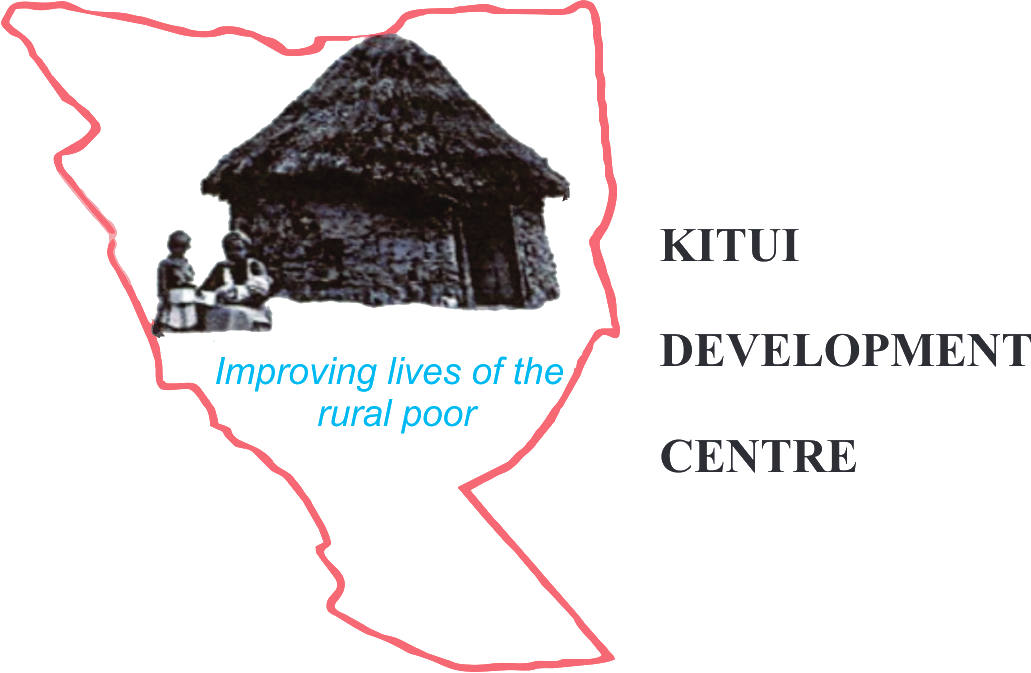WATER, ENVIRONMENT, AND CLIMATE CHANGE (WECC)
The KDC’s interventions on Climate Change Adaptation (CCA) aim to improve the resilience of
smallholder farmers against the impacts of climate change. This is because most county residents
depend on rain-fed small-scale farming, which is highly vulnerable to climate change and
environmental degradation.
The community also engages in sand harvesting and charcoal
burning for livelihoods, although these activities are destructive.
To address this, KDC initiates programs and projects that promote environmental protection,
mitigation, and response to climate change, as well as access to safe, clean, and affordable
energy.
These programs also address other issues related to the natural environment, including
green energy, rainwater holding /harvesting, and energy conservation through the promotion of
energy-efficient cook stoves and other energy-saving measures and alternatives.
Project aims:
To increase forest cover through the adoption of agroforestry technologies and
support the government's call to action of planting 15 billion trees by 2032.
KDC further seeks to enhance access to clean and affordable water for humans, irrigation, and
livestock.
The focus advocacy strategy includes
Practical tree planting with the community
Promotion of young environmentalists through school environmental clubs.
Media-based climate change awareness
Community-managed risk reduction
Promotion of integrated farming and landscaping approaches
Integrated water harvesting and management
Establishment of water harvesting structures- roof catchment, water dams, shallow wells,
water ponds, bore holes, and hand wells.
Kitui Development Centre (KDC) established three-in-one projects as follows:
1. Climate Change and Adaptation to increase forest cover through the adoption of agroforestry
technologies, improve climate resilience, and promote sustainable livelihoods by tackling soil
erosion and deforestation—largely caused by unsustainable practices such as charcoal burning,
in partnership with the International Tree Foundation
2. Schools greening initiatives with support from CISCO, ADP, PELUM, and other well-wishers
3. The project supports and strengthens four community tree nurseries: Kithambangii, Mbathani,
Kilingile, and Itulu, to produce tree and fruit seedlings.
Deliverables
Four (4) community nurseries (Kithambangii nursery, Mbathani nursery, Kilingile,
and Itulu nurseries) were supported to ensure optimum production. They were all
fenced, and lockable doors were installed to keep predators away.
The community members were capacity built on nursery management skills, which
include seed sourcing, seed sowing, propagation, soil mixing, nursery arrangement,
and training on fruit grafting.
As a sustainability measure, an exposure exchange visit to Drylands Natural Resource
Center(DNRC) in Makueni was done with 2 representatives from each nursery.
Farmers, including the nursery members, were trained in gender integration in climate
change mitigation, and 221 pupils from schools were trained on sustainable tree
growing in ASAL areas. Additionally, four environmental clubs were established in
primary schools. These E-clubs resulted in the formation of the school's greening
initiative.
All nursery members were trained in organic farming, and each nursery established
an organic kitchen garden growing African leafy vegetables (Black nightshade,
amaranthus, cow peas, Kale, Spinach, etc.).
Become A Donor

